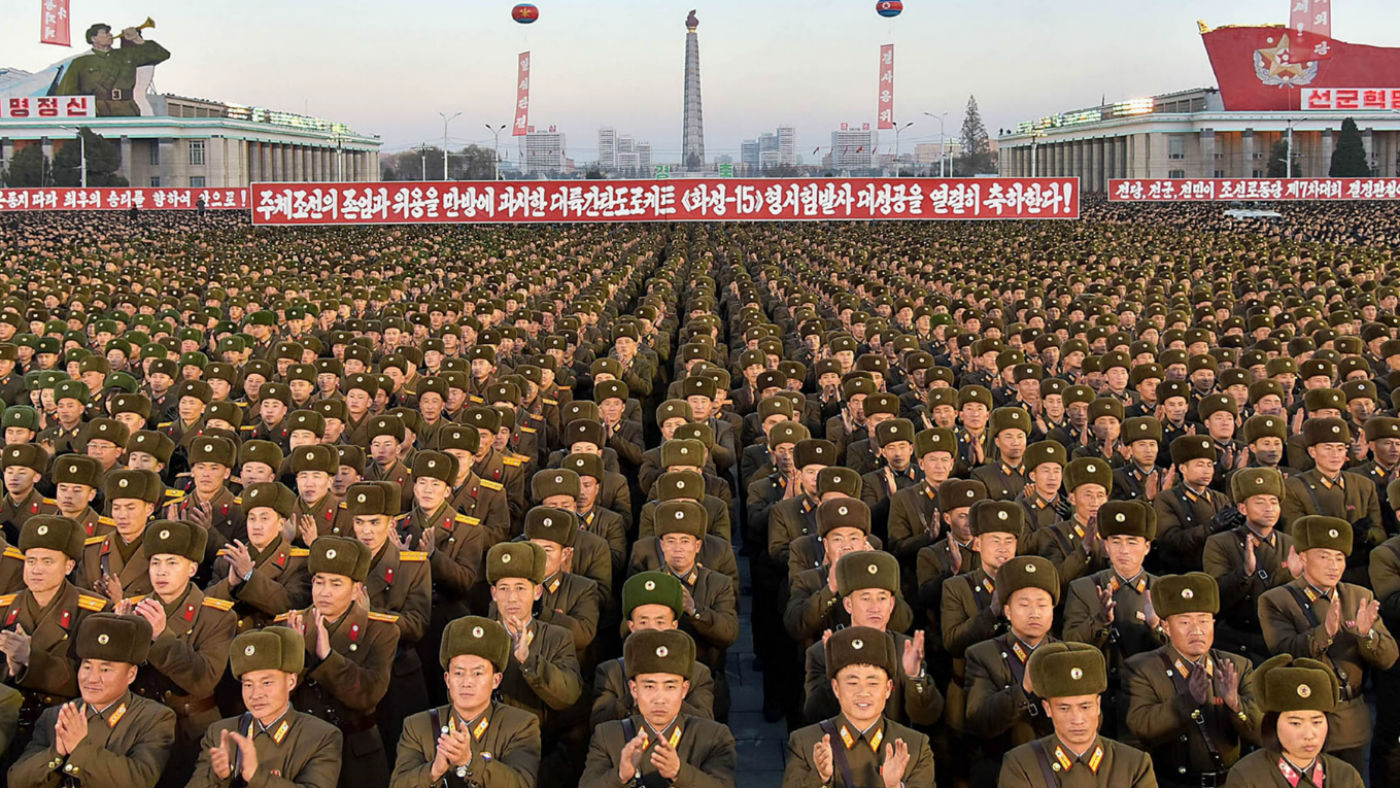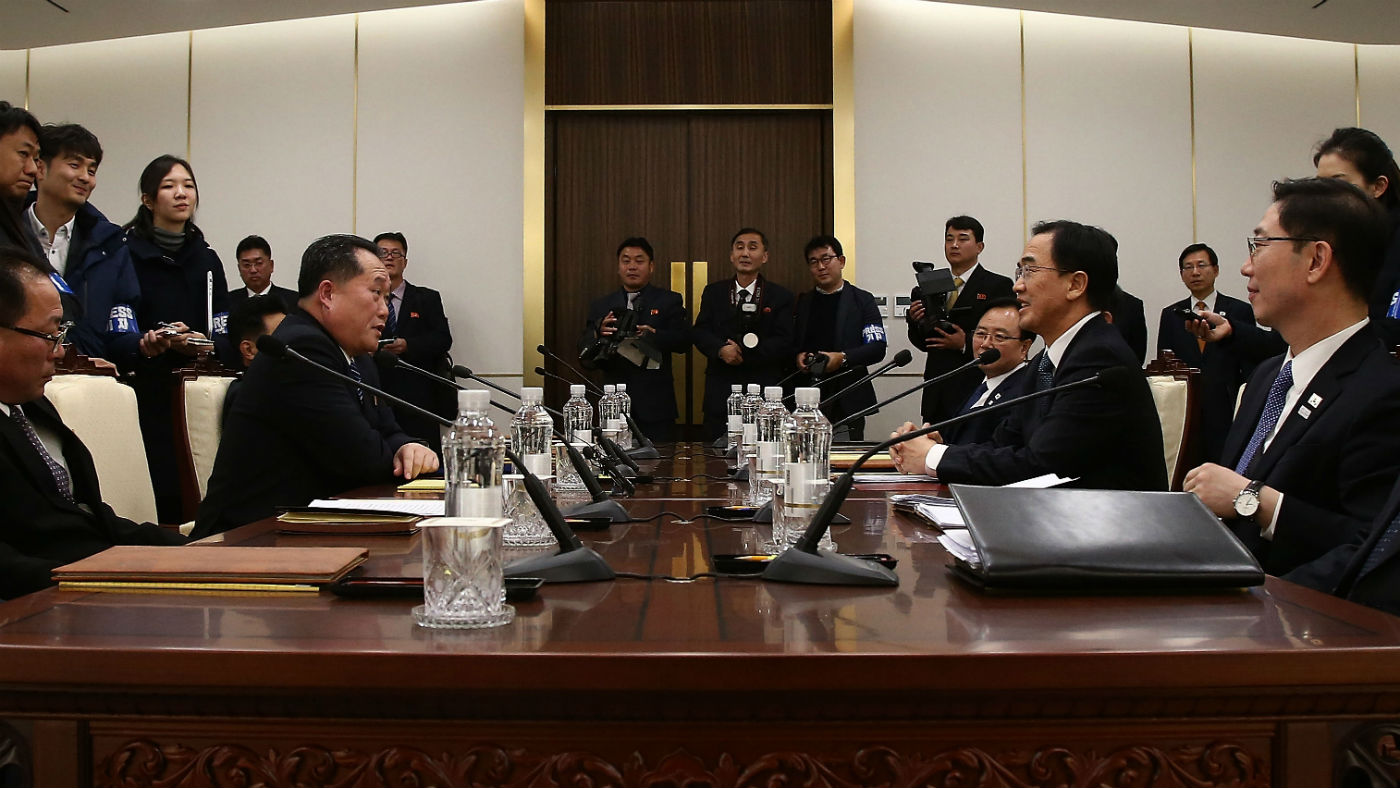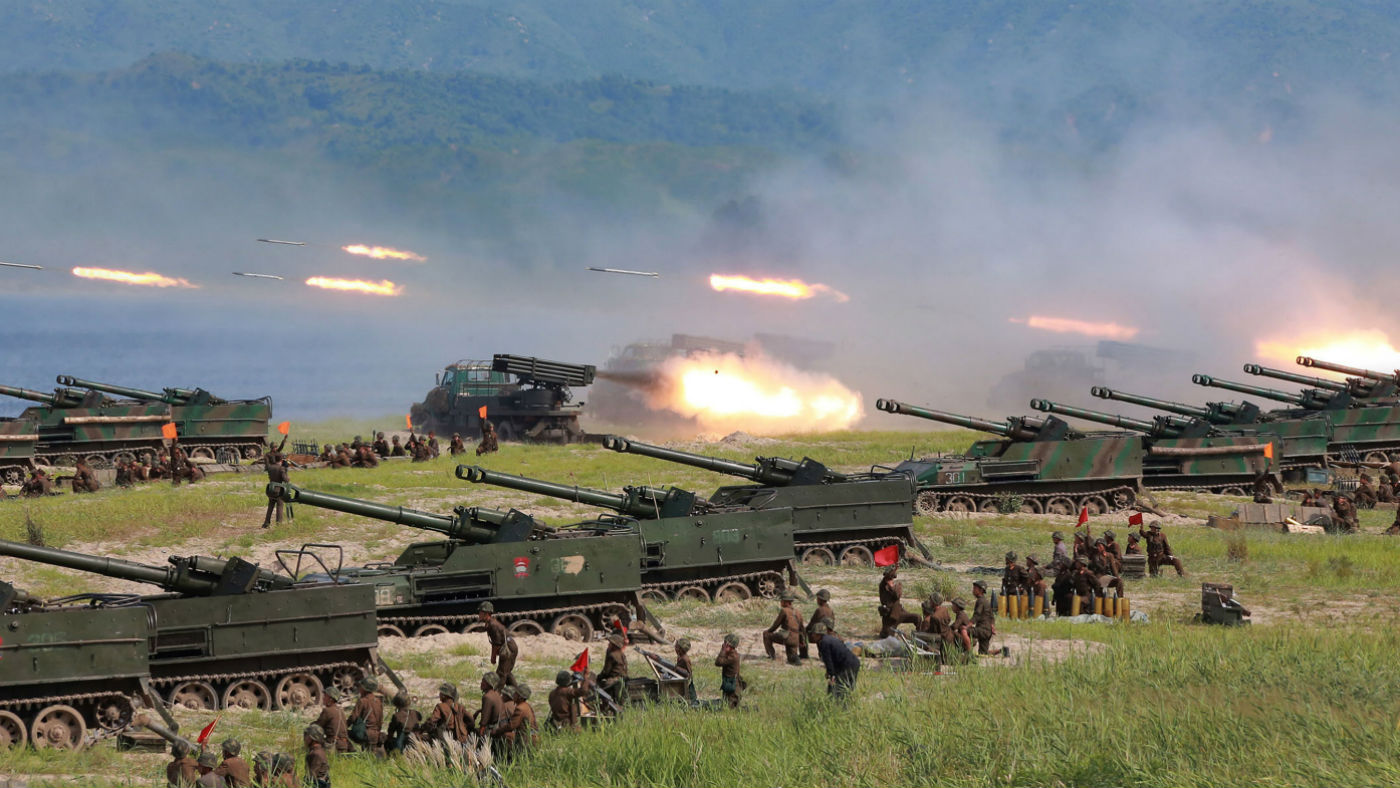Three scenarios that could bring down North Korea
In Depth: how Kim Jong Un’s regime might meet its end

A free daily email with the biggest news stories of the day – and the best features from TheWeek.com
You are now subscribed
Your newsletter sign-up was successful
The downfall of North Korea is often envisioned in lurid, apocalyptic colours, but is a second Korean War really the only way to bring an end to what is arguably the world’s most repressive regime?
Here are three scenarios examining how the collapse of North Korea could occur - the good, the bad and the ugly.
The good - a peaceful transition
The Week
Escape your echo chamber. Get the facts behind the news, plus analysis from multiple perspectives.

Sign up for The Week's Free Newsletters
From our morning news briefing to a weekly Good News Newsletter, get the best of The Week delivered directly to your inbox.
From our morning news briefing to a weekly Good News Newsletter, get the best of The Week delivered directly to your inbox.
Given the state of North Korea’s relations with the wider world, one realistic path towards a more open North Korea lies in rapprochement with the South.

South Korean and North Korean meet for high-level talks for the first time in two years, on 9 January 2018 (Korea Pool/Getty Images)
Both sides want to see a reunified Korea. However, Pyongyang’s refusal to compromise on regime change or denuclearisation makes it unlikely that significant headway will be made.
While North Korea’s participation in the Olympic Winter Games is a positive step, signs of democracy taking root in North Korea would probably be met with stiff opposition from China.
A free daily email with the biggest news stories of the day – and the best features from TheWeek.com
North Korea’s strategic function as a buffer between China and the significant US military presence in South Korea means that Beijing “would be unwilling to countenance a unified Korea led by South Korea and under the influence of the United States”, says Deutsche Welle.
The bad - internal collapse
Whether it comes in the form of a military coup or, less likely, a popular uprising, North Korea’s downfall may come from within.
The country’s centralised economy, its autocratic political system and its frail infrastructure make it vulnerable in the event of a sudden regime change, according to a report by non-profit research organisation Rand.
The collapse of the all-powerful Kim dynesty regime after six decades would leave a power vacuum that would be likely to tip the country into factional strife, says Rand.
With the southern border heavily militarised, China would be the obvious choice for North Koreans fleeing internal upheaval - which is another reason Beijing continues to prop up the Kim leadership.
According to Quartz, a sudden influx of millions of North Koreans in need of food, shelter, clothing, work and education into a reluctant China would present a “humanitarian disaster of epic proportions”, far outstripping the European refugee crisis of 2015.
Rand envisions a joint US-South Korea operation to restabilise North Korea and ultimately bring about unification of the two states; a massive task, given the North’s backwardness on almost every economic, social and political metric.
The issue is that “neither the ROK [Republic of Korea] nor the United States is adequately prepared for such an intervention”, says the research organisation.
“If Iraq was a hard country to occupy and rebuild, imagine a suddenly stateless North Korea, possibly irradiated and toxic, its economy and infrastructure in ruins,” says The Atlantic.
The risk of regional destabilisation would be compounded by a US military presence in North Korea that would inflame tensions between Beijing and the US-Japan-South Korea axis.
In the worst-case scenario, Rand warns, hostile interactions between Chinese and US forces in North Korea could escalate into a full-scale conflict.
The ugly - global conflict
Rhetoric between the US and North Korea may have cooled in recent weeks, with Secretary of State Rex Tillerson urging calm and North Korea focusing on relations with the South, but that does not mean the threat of nuclear war - intended or otherwise - is off the table.
The false alarm in Hawaii on Saturday underscores “a growing risk of unintended nuclear war with North Korea”, says The New York Times.
An accidental warning - and the doomsday scenario it evokes - could lead to a deadly nuclear retaliation.
Even without US provocation, Kim “could calculate that a surprise attack on South Korea would rally the population and remind the world of the North’s power”, says Foreign Policy.
The opening barrage could wreak havoc in the blink of an eye. A missile fired from the artillery guns that line the North Korean edge of the demilitarised zone (DMZ) could strike Seoul in just 45 seconds, Newsweek says.

North Korean soldiers fire missiles during a target strike exercise in August 2017 (STR/AFP/Getty Images)
Such a bombardment would almost certainly inflict mass civilian casualties in the South, as well as putting transport and communication links out of action.
However, the tables would quickly turn in the face of overwhelming US-South Korea firepower.
US-led airstrikes could level North Korea’s major military infrastructure within hours, says Foreign Policy, while the regime’s million-strong army would exhaust its reserves of supplies and ammunition within days.
Notwithstanding its short duration, the conflict would be bloody. Casualties of war alone “could total in the hundreds of thousands”, the magazine adds, with many more civilians dying from starvation and disease in the broken husk of the former Democratic People’s Republic of Korea.
The final death toll would depend on whether nuclear weapons were used and, crucially, whether China intervened.
Beijing has already said it would only come to North Korea’s defence if the US strikes first - a scenario that would theoretically pit the world’s largest powers against one another - but many experts are sceptical that this will ever come to pass.
“China is not going to end up in a shooting war with the United States over North Korea,” Malcolm Davis, a senior defence analyst at the Australian Strategic Policy Institute, told SBS News. “I suspect it would keep its forces on its side of the border and just wait to see what happens.”